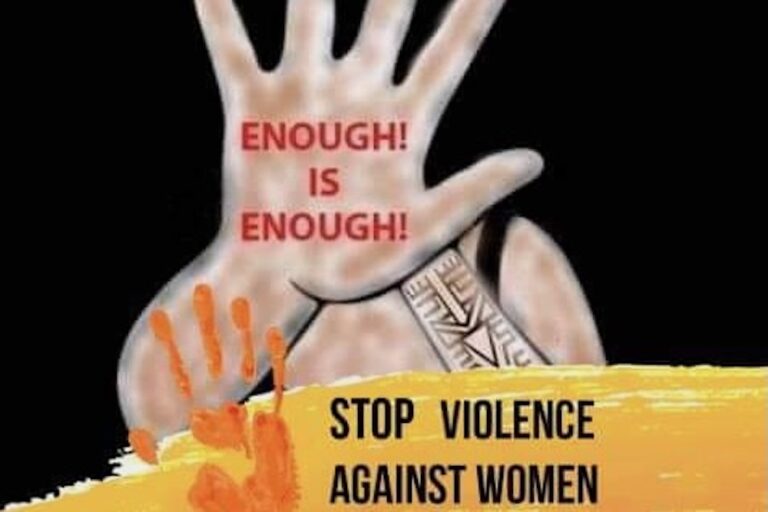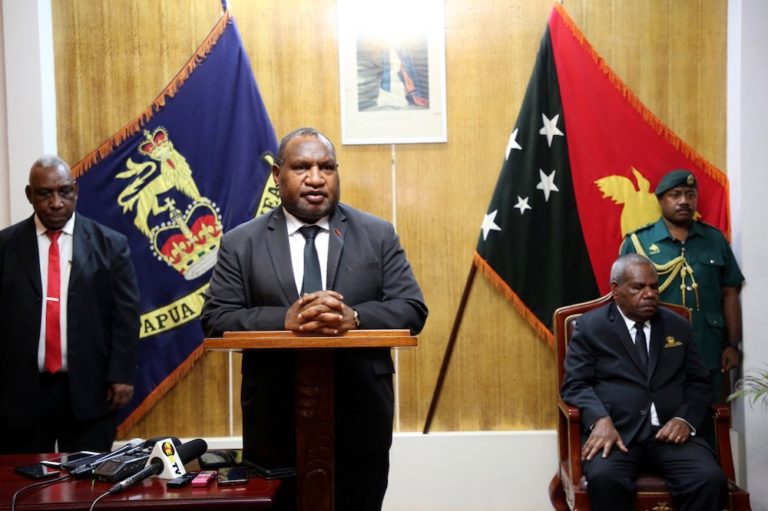(PINA/IFEX) – Bill Skate, Papua New Guinea Prime Minister, marked World Press Freedom Day with a pledge of total opposition to any move to reintroduce proposed media laws which would allow for the licensing of journalists and news organisations. After making this announcement at a World Press Freedom Day news conference, he invited journalists to […]
(PINA/IFEX) – Bill Skate, Papua New Guinea Prime Minister, marked World
Press Freedom Day with a pledge of total opposition to any move to
reintroduce proposed media laws which would allow for the licensing of
journalists and news organisations. After making this announcement at a
World Press Freedom Day news conference, he invited journalists to lunch.
The media laws had been proposed in 1996 before Skate became Prime Minister.
Plans to have them passed were dropped in the face of public and media
outrage.
In a 4 May 1998 report Oseah Philemon, editor of the country’s largest daily
newspaper, “The Papua New Guinea Post-Courier”, quoted Skate as saying: “My
government will never support that bill as long as I am Prime Minister. I
can scream and shout and show my dissatisfaction with you but deep down in
my heart I will not support the media bill because I believe that freedom of
speech, freedom of press must be given the fullest support if democracy is
really going to work in this country.” According to Philemon, Skate also
thanked the media for helping him shape his prime ministerial role, telling
journalists that “the way you have reported things [has] kept me on my toes.
I am very cautious about what I want to say and what I want to do because I
don’t want to give the wrong signal and you report something that is going
to fire back on me. But at the same time I think you have really in a way
trained me and guided me to be what I am today so I also want to thank the
media for its contribution in molding me to be a prime minister . . . to
this standard because I have never been a prime minister, never been a
cabinet minister and you have indirectly trained me to be careful in how I
present myself, how I say things and to that effect I also want to say thank
you.”
Further, Skate congratulated Papua New Guinean journalists “for a job well
done over the years,” noting that “as politicians, we have sometimes been
unfair to you simply because of our emotions and our frustrations and the
pressures we go through. The standard of reporting over the last three, four
years has improved and I want to encourage all Papua New Guinea journalists
to continue that way.” He also appealed to the media to work closely with
the government in disseminating information to the public, stating that the
“government cannot work alone and try to filter the information to the
people . . . you are the most important people in telling the people of
Papua New Guinea what Government is doing.” According to Philemon, Skate
thanked journalists for their coverage of the 10-year long rebellion on the
island of Bougainville, pointing out that without them it would have been
difficult for the authorities to achieve the peace now returning to
Bougainville. As he put it: “I think you were the voice of the people of
Papua New Guinea and you assisted the Government to report on what is
happening on Bougainville.”
Skate indicated that the rise of media freedom in Papua New Guinea was
linked to the increasing number of media outlets in the country, arguing
that “with the increase in media outlets there are more journalists and
media people. There is an increase in the number of sources for the public
to receive news. This means the public wants more professional journalists.
The greater competition in the media industry has seen a rise in
professional standards . . . the more professional standard of journalism
has ensured a more vibrant and free standard of journalism in our nation.”
Background Information
Papua New Guinean politicians have twice tried to introduce legislation
designed to tighten their control over the country’s news media. Papua New
Guinean journalists are regarded as amongst the most free in the Pacific
Islands region, and have played a leading role in reporting on corruption
and abuse of public office and the Bougainville conflict. Both efforts to
introduce such legislation were abandoned following widespread protests by
the public, the media, and other politicians.


